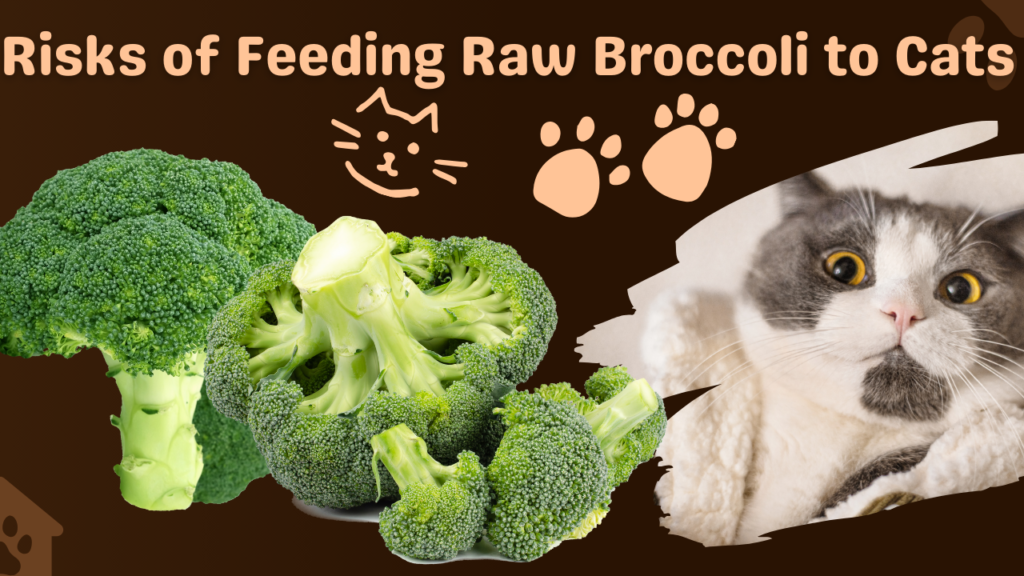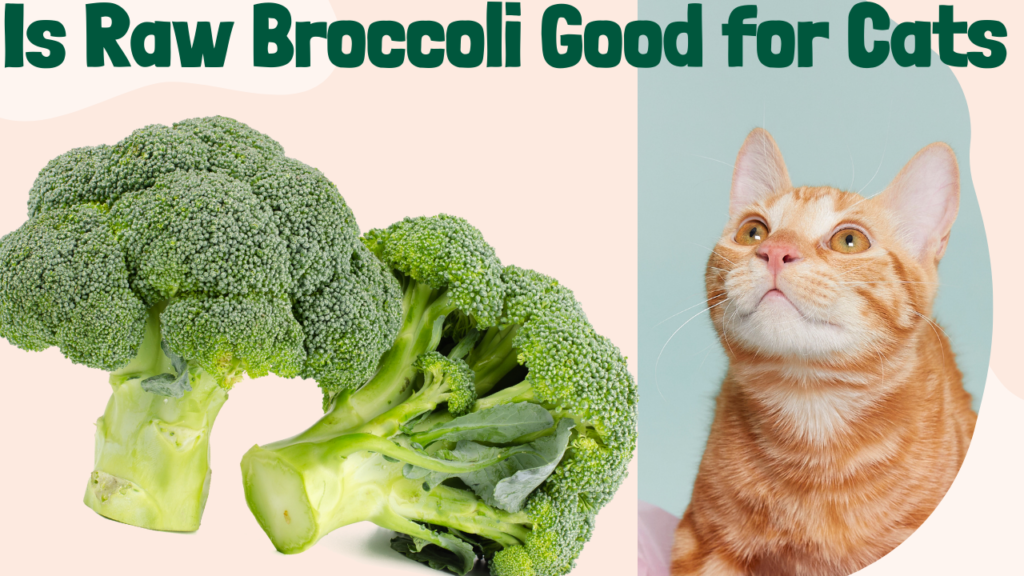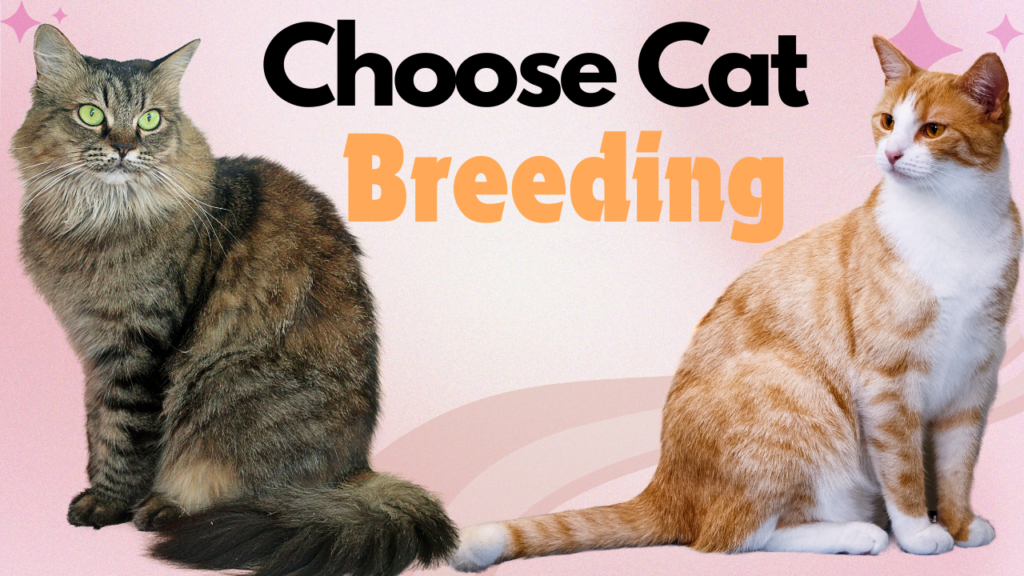When it comes to feeding our feline friends, pet owners often wonder about the safety and benefits of various human foods. One such food, broccoli, is known for its rich nutrient profile for humans, but is it safe for cats? This comprehensive guide explores the potential benefits, risks, and best practices for feeding raw broccoli to cats, so pet owners can make informed choices.
Can Cats Eat Broccoli Safely?
Yes, broccoli is generally safe for cats in small amounts. Unlike many other vegetables, broccoli is non-toxic to cats and can offer certain health benefits if served in moderation. Cats are obligate carnivores, meaning they rely heavily on meat for their nutritional needs. However, a small amount of broccoli can be a suitable treat and provide unique health benefits due to its nutrient profile.
Nutritional Profile of Broccoli
Broccoli is packed with:
- Fiber – Helps with digestion and may assist in reducing hairballs.
- Vitamin C – Acts as an antioxidant, but must be limited to avoid excessive intake.
- Vitamin K -aids in proper blood clotting and strengthens bone health.
- Potassium – aids in heart health and supports muscle function.
- Iron – is key to the creation of red blood cells.
These nutrients, when offered sparingly, may contribute to your cat’s well-being, especially if it has gastrointestinal issues.
Benefits of Broccoli for Cats
While cats do not need vegetables for survival, some benefits of broccoli include aiding digestion, satisfying a cat’s urge to chew, and providing antioxidants.
Digestive Health and Fiber
The fiber in broccoli can help support digestive health, potentially aiding with constipation, diarrhea, or hairball reduction. Fiber also promotes the growth of beneficial bacteria in the gut, which helps regulate a cat’s digestive system.
Antioxidants and Immune Support
Broccoli is rich in antioxidants, which can combat oxidative stress in cells and help protect against illness. These antioxidants, particularly vitamins C and A, support immune health and can reduce inflammation. However, since cats get most of their essential vitamins from a balanced meat-based diet, broccoli should only be a supplemental treat.
Anemia Prevention and Heart Health
Iron and potassium in broccoli can support red blood cell health and maintain a regular heart rhythm. Although these nutrients are best sourced from meat, a small quantity from vegetables can offer a slight nutritional boost.
Risks of Feeding Raw Broccoli to Cats
While broccoli is safe in small portions, certain risks should be considered.

Gastrointestinal Upset
Cats have a limited capacity to digest fiber, and too much broccoli may lead to bloating, gas, or diarrhea. Fiber absorbs water from the digestive system, which can lead to dehydration if consumed in excess.
Oxalates and Urinary Health
Broccoli contains oxalates, which, in large amounts, can lead to bladder stones, especially in cats prone to urinary tract issues. Pet owners should monitor portion sizes and avoid feeding broccoli too frequently.
Risk of Pesticides
Broccoli may contain pesticide residues, which can be harmful to cats. Always wash broccoli thoroughly or choose organic varieties to minimize this risk.
How to Prepare Broccoli for Your Cat
When offering broccoli to your cat, follow these guidelines to ensure it is safe and appealing.
- Rinse Thoroughly – Wash broccoli under cool water to remove any pesticides or contaminants.
- Serve Raw or Lightly Steamed – Cats can eat raw broccoli, which may satisfy their urge to chew. Light steaming makes broccoli easier to digest.
- Avoid Seasonings – Broccoli should be free from salt, oil, spices, or butter. Seasonings can cause gastrointestinal issues or toxicity in cats.
- Cut into Small Pieces – Serving broccoli in small, bite-sized pieces prevents choking and encourages safe consumption.
mermaidCopy codegraph TD
A[Broccoli Preparation for Cats] --> B[Wash Thoroughly]
A --> C[Serve Raw or Lightly Steamed]
A --> D[No Seasonings or Additives]
A --> E[Cut into Small Pieces]
How Much Broccoli Should Cats Eat?
Broccoli should only make up a small portion of your cat’s diet. Ideally, broccoli can be an occasional treat given once or twice a week in small quantities. Cats do not require plant-based foods, so it’s important to keep broccoli and other vegetables to a minimum in their diet to avoid any adverse effects.
Alternative Treats for Cats
If your cat does not show an interest in broccoli, there are other options for treats that provide stimulation without compromising their carnivorous diet. Safe, protein-rich treats include:
- Cooked Chicken – is rich in protein and gentle on digestion.
- Salmon – Contains omega-3 fatty acids, beneficial for skin and coat health.
- Liver – A nutrient-dense treat, but should be given in moderation to avoid vitamin A toxicity.
Final Thoughts: Is Broccoli a Good Choice for Cats?
Broccoli is a safe, occasional treat for cats that may offer some minor health benefits, such as fiber for digestive support and antioxidants for immune health. However, because cats are obligate carnivores, meat should remain the primary focus of their diet. Use broccoli sparingly and as a supplement to a balanced, high-protein cat food.
#: READ ANOTHER POSTS
1 : Can Cats Eat Donuts? A Guide to Feline Nutrition and Health Risks
2 : Is Moss OK for Cats? A Comprehensive Guide
4 : How to Measure Your Cat’s Heart Rate While Purring: A Comprehensive Guide


